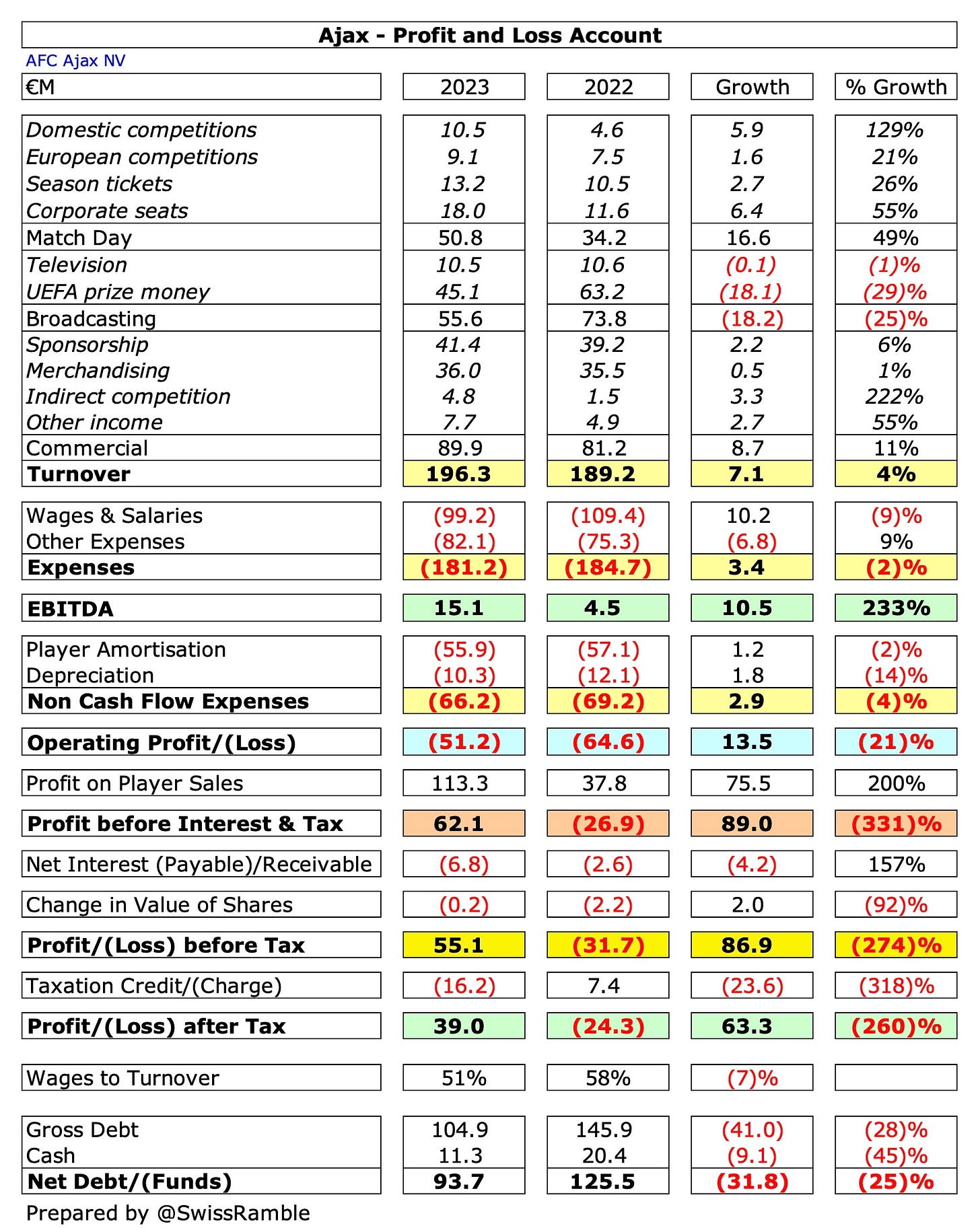It’s fair to say that this has been an awful season so far for Ajax, as they are currently languishing in 15th place in the Eredivisie, just above the relegation zone.
Their displays on the pitch have been bad enough, but the bad mood around the club was reinforced when their fans forced a recent match against Feyenoord to be abandoned, with their team already 3-0 down to their rivals, followed by riots around the stadium.
Management Issues
Director of football, Sven Mislintat, was then fired, due to a lack of support within the club, while he was also under investigation for a potential conflict of interest in a player deal.
Following Ajax’s failure to qualify for the Champions League, the man known as “Diamond Eye” had been tasked with reducing the wage bill by offloading players, but his transactions have not exactly been a resounding success to date.
Furthermore, Mislintat also brought in the inexperienced Maurice Steijn as head coach, as a replacement for the popular John Heitinga, even though many believed that the job was too big for the man poached from Sparta Rotterdam.
Ajax had already been facing a number of other management issues, starting with the departure of former director of football, Marc Overmars in February 2022, following a newspaper investigation that revealed a “series of inappropriate messages to several female colleagues”.
Then came the retirement of chief executive Edwin van der Sar in May 2023 after seven years in charge, as the former goalkeeper complained that this vital role had left him feeling exhausted.
Good Times
Up until then, it had all seemed to be going so well for Ajax, as they had won the Dutch league three times in four seasons (and the missing year was declared void due to COVID). More memorably, they were only seconds away from reaching the Champions League final in 2019, before they were cruelly denied by Tottenham’s late goal.
2022/23 season
The expectation was that this would act as the platform for years of domestic dominance, but 2022/23 saw Ajax overtaken by both Feyenoord and PSV.
The club described the performance as “disappointing” after they finished third in the league, exited the Champions league at the group stage and were defeated by PSV in the KNVB Cup final. It was therefore no surprise that head coach Alfred Schreuder was released with Heitinga taking over on an interim basis.
So things look fairly bleak for Ajax at the moment, but what is the state of the club’s finances?
We can analyse this by looking at the accounts for the 2022/23 season, which have happily just been published.
Profit/(Loss) 2022/23
Despite the poor sporting results, Ajax still achieved an impressive €55m pre-tax profit (€39m after tax), compared to a €32m loss in the previous season.
The €87m improvement was largely due to significant profit from player sales, which shot up €75m from €38m to €113m. In addition, revenue increased by €7m (4%) from €189m to €196m, while operating expenses fell €6m (3%) to €248m.
Ajax’s revenue was hit by lower TV income from European competitions, which led to an €18m (25%) reduction in broadcasting from €74m to €56m, but this was offset by increases in the other two revenue streams.
Match day rose €17m (49%) from €34 to €51m, as some matches were played without crowds the previous season because of COVID restrictions, while commercial was up €9m (11%) from €81m to £90m.
Unlike previous seasons, the COVID pandemic had no impact on the financial results.
Ajax’s squad costs fell, as the wage bill dropped €10m (9%) from €109m to €99m, while player amortisation slightly decreased €1m (2%) to €56m. However, other expenses rose €7m (9%) to €82m, mainly due to the higher costs of staging all games with fans.
Only a couple of clubs have published accounts for the 2022/23 season at this point, but it would be surprising if anyone surpassed Ajax’s very high €55m pre-tax profit.
Keep reading with a 7-day free trial
Subscribe to The Swiss Ramble to keep reading this post and get 7 days of free access to the full post archives.




